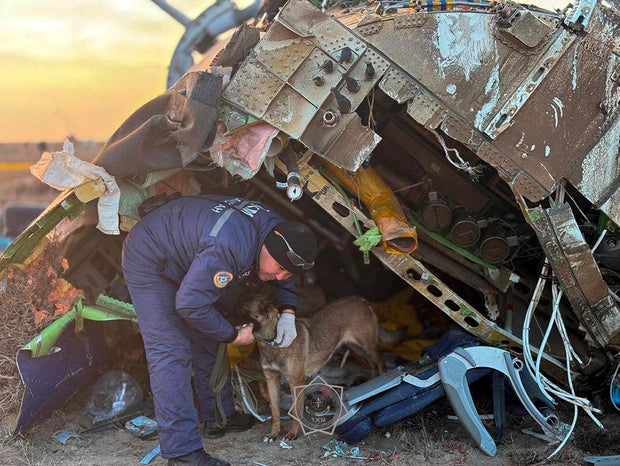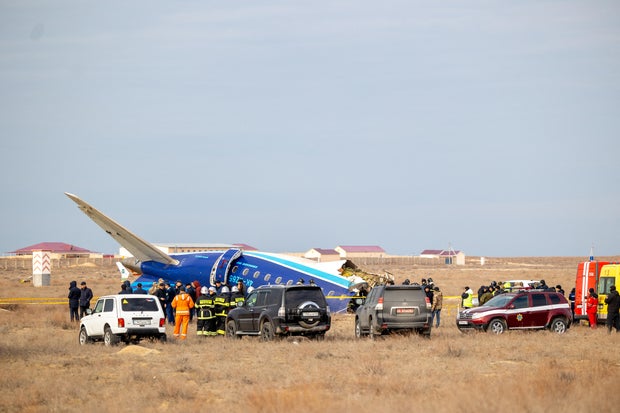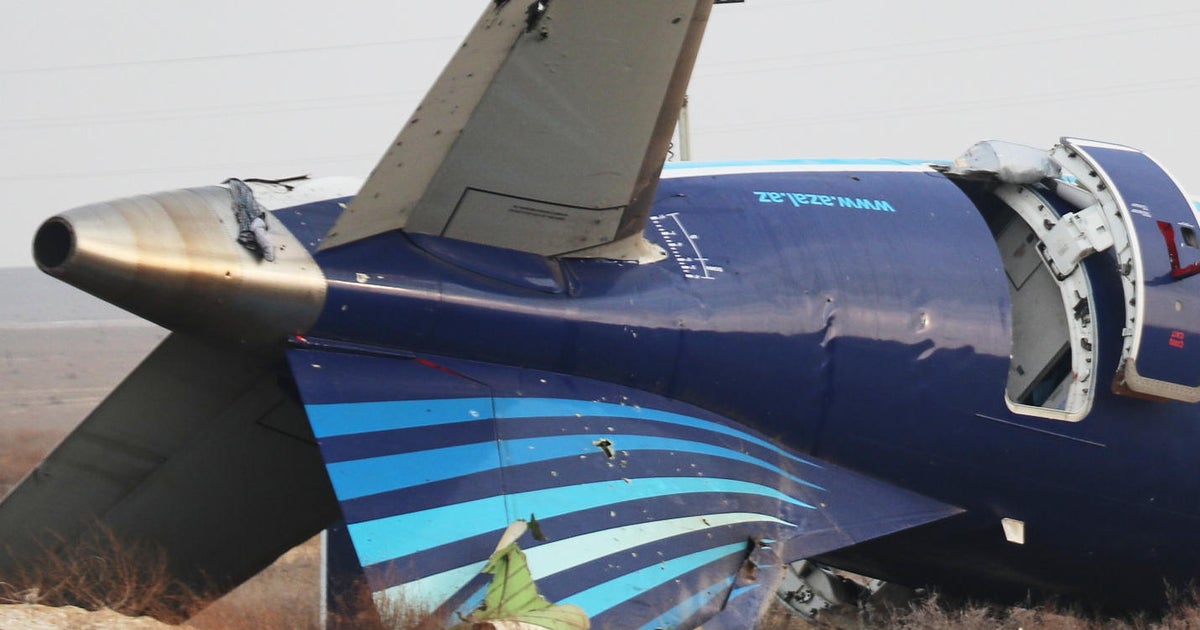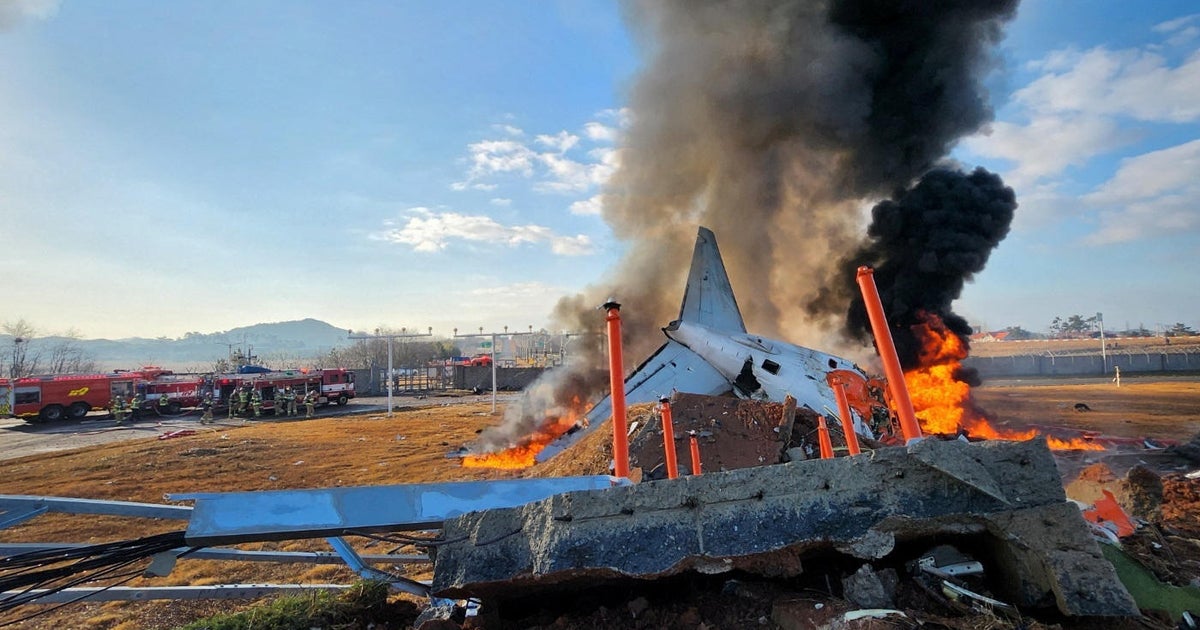Putin apologizes to Azerbaijani leader for "tragic incident" involving crashed plane in Kazakhstan
Russian President Vladimir Putin on Saturday apologized to his Azerbaijani counterpart for what he called a "tragic incident" following the crash of an Azerbaijani airliner in Kazakhstan that killed 38 people.
Azerbaijan Airlines Flight 8243, an Embraer 190 aircraft, was flying from the Azerbaijani capital of Baku to the city of Grozny in Russia's North Caucasus region on Wednesday when it was diverted for reasons that aren't yet fully clear.
It crashed while trying to reach another airport in Aktau, in western Kazakhstan. Cellphone footage appears to show the aircraft making a steep descent before hitting the ground and exploding in a fireball about two miles from the Aktau airport.
The airline said 67 people were on board — 62 passengers and five crew members — and 38 people died in the crash. There were 29 survivors.
An official Kremlin statement issued Saturday said that air defense systems were firing near Grozny airport as the airliner "repeatedly" attempted to land there on Wednesday. It did not explicitly say one of these hit the plane.
The statement said Putin apologized to Azerbaijani President Ilham Aliyev "for the fact that the tragic incident occurred in Russian airspace."
"(President) Vladimir Putin apologized for the tragic incident that occurred in Russian airspace and once again expressed his deep and sincere condolences to the families of the victims and wished a speedy recovery to the injured," the Kremlin said in a statement.
The readout said Russia has launched a criminal probe into the incident, and Azerbaijani state prosecutors have arrived in Grozny to participate. The Kremlin also said that "relevant services" from Russia, Azerbaijan and Kazakhstan are jointly investigating the crash site near the city of Aktau in Kazakhstan.
Putin's call with Aliyev came after speculation grew that Russian air defense may have accidentally shot down the plane.
The Kremlin said the call took place at Putin's request.
According to a readout of the call provided by Aliyev's press office, the Azerbaijani president told Putin that the plane was subject to "external physical and technical interference," although he also stopped short of blaming Russian air defenses.
Aliyev noted that the plane had multiple holes in its fuselage and that the occupants had sustained injuries "due to foreign particles penetrating the cabin mid-flight."
Kazakhstan, Azerbaijan and Russia all opened investigations into the cause of the crash. The Kremlin has urged people not to jump to conclusions. Investigators have recovered both of the so-called black boxes, the flight data and cockpit voice recorders, from the crash site.
On Friday, a U.S. official and an Azerbaijani minister made separate statements blaming the crash on an external weapon.
A U.S. official told CBS News there were early indications a Russian anti-aircraft system may have struck the plane in a region where Ukrainian and Russian forces have traded drone and rocket fire for months. The official, who spoke on the condition of anonymity, said if that proved to be true, it would further underscore Russia's recklessness in its ongoing invasion of Ukraine.
White House National Security Council spokesman John Kirby said Friday that U.S. officials "have seen some early indications that would certainly point to the possibility that this jet was brought down by Russian air defense systems."
He confirmed to reporters that the U.S. has intelligence or information pointing to the possibility, but said Kazakhstan and Azerbaijan are currently conducting the investigation and the U.S. will "respect that process."
Passengers and crew who survived the crash told Azerbaijani media that they heard loud noises on the aircraft as it was circling over Grozny.





